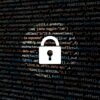Healthcare
Zero-Trust Security in Healthcare: Why It’s Essential for Data Protection
The healthcare industry is one of the most targeted sectors for cyberattacks. Patient data is more vulnerable than ever with an increasing reliance on digital records, telehealth, and IoT-connected medical devices. Traditional security models that rely on perimeter defences are no longer sufficient. This is where zero-trust security comes in, a model that assumes no user or device should be trusted by default, whether inside or outside the network. This post details why implementing a zero-trust approach is crucial to safeguarding sensitive patient data and ensuring compliance with regulations like HIPAA for healthcare organizations.
Understanding Zero-Trust Security
Zero-trust security is built on the principle of never trusting and always verifying. Instead of granting broad access based on network location, it continuously validates users, devices, and applications before allowing access to sensitive information. This ensures that only authorized individuals can access sensitive information, reducing the risk of data breaches and insider threats. The key components of a zero-trust framework include:
Multi-factor authentication (MFA): Verifying users through multiple authentication factors before granting access.
Least privilege access: Ensuring users have the minimum necessary permissions to perform their tasks.
Micro-segmentation: Dividing networks into smaller segments to contain potential threats.
Continuous monitoring: Using AI-driven analytics to detect suspicious behaviour in real time.
Why Healthcare Needs Zero-Trust Security
Protection Against Ransomware and Cyberattacks
Healthcare institutions store vast amounts of sensitive patient data, making them prime targets for ransomware attacks. By implementing Zero Trust, healthcare organizations can limit attackers’ lateral movement within the network, preventing them from accessing or encrypting critical patient records.
Safeguarding Patient Data in Remote Healthcare
The rise of telehealth has expanded the attack surface for cybercriminals. Remote consultations, electronic prescriptions, and mobile health apps all present new vulnerabilities. Securing patient data regardless of location.
Compliance with Regulatory Standards
Healthcare organizations must adhere to strict data protection regulations such as HIPAA (Health Insurance Portability and Accountability Act) and GDPR (General Data Protection Regulation). Zero-trust helps maintain compliance by enforcing access controls, auditing user activity, and ensuring end-to-end encryption of patient data.
Securing IoT and Medical Devices
Medical devices such as pacemakers, insulin pumps, and imaging machines are increasingly connected to the Internet. While these devices improve patient care, they also introduce security risks. Zero-trust ensures that every device is verified before connecting to the network, reducing the chances of authorized access or exploitation.
Integrating Zero-Trust with Advanced Security Tools
A comprehensive zero-trust strategy should integrate with advanced security tools like identity and access management (IAM), endpoint detection and response (EDR), and AI-driven threat intelligence.
Additionally, a card scanner plays a vital role in scanning and verifying any credit or debit card on modern smartphones. Ensuring secure authentication and verification processes in healthcare facilities. By incorporating card scanner technology, hospitals and clinics can strengthen identity verification, reducing the risk of authorized access to patient records.
The Future of Healthcare Security
As cyber threats evolve, healthcare organizations must adopt proactive security measures. Zero-trust is not just a trend but a necessary shift in cybersecurity strategy. By eliminating implicit trust and enforcing strict access controls, healthcare providers can protect patient data and maintain regulatory compliance and security resilience.
Implementing a zero-trust framework may require investment in new technologies and security training, but the long-term benefits far outweigh the risks of a data breach. The future of healthcare security depends on the zero-trust approach, ensuring that patient data remains protected in an increasingly digital world.










































